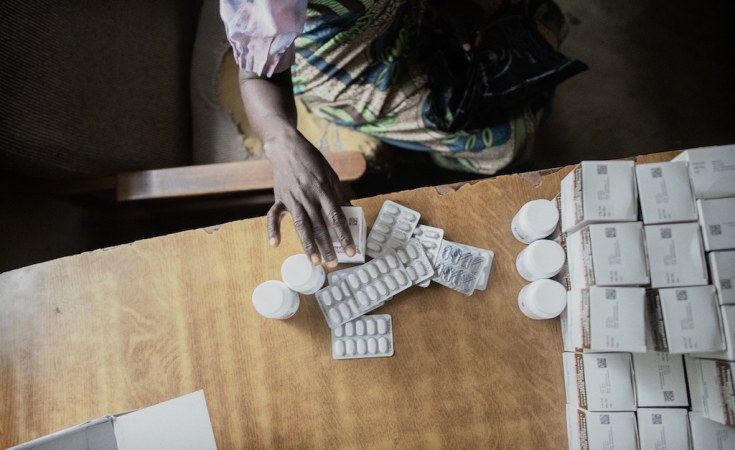Ahead of World Tuberculosis (TB) Day tomorrow, Dr Lucy Connell, TB programme lead at health NPO Right to Care , says, "South Africa has one of the highest TB rates in the world. Right to Care supports SA'S theme for World TB Day this year which is 'Yes! You and I can end TB.' Great strides have been made identifying people likely to have TB, testing and diagnosing more TB. Yet we are still under-diagnosing TB and this is hampering efforts to meet global targets and end TB by 2030."
SA is still 'missing' thousands of people who have TB. The World Health Organisation suggests that in 2021, only 57% of those with TB in SA were started on treatment. SA's TB programme also took a serious knock during the pandemic, which set global TB control back by some ten years.
Dr Connell adds, "The mistake people often make is that they think they are not at risk of getting TB. Anybody can get TB. If you breathe, you can get TB. We are making people aware of their risks and the symptoms of TB. We are working with health departments to support the national plan to scale up the diagnosis of TB through increased community TB screening, more accurate screening tools and TB testing."
TB is a contagious infection caused by a bacteria (a type of germ) that usually attacks your lungs, spreads very easily and can be deadly. When you have active lung TB and you cough, talk, sneeze or spit, you emit germs into the air and anyone who breathes in these germs can become infected. TB is curable if detected and treated early.
The SA National Health Laboratory Services reports that the numbers of people testing positive and starting TB treatment have not increased to pre-Covid levels in many health districts. "It took only three years for a home Covid-19 rapid test to be developed. We need the same sense of urgency with TB," adds Connell.
Diagnosing TB
People at risk of TB, and those who have any TB symptom or a chest X-ray that suggests TB require a TBGeneXpert test to confirm if they have TB. The test relies on a quality sputum sample. "This is where SA is falling short," explains Dr Connell. "There are challenges with sputum collection. Low sputum collection rates result in missing people who have TB which undermines the potential impact of digital chest X-ray TB screening."
Sputum, also known as phlegm, is a thick type of mucus made in the lungs. When someone has TB, the phlegm can be a range of colours, usually whitish, but also beige, green, brown or tinged with blood.
Challenges with sputum collection
Sputum production often requires a vigorous cough effort. Many people living with TB are not yet sick or coughing so they may battle to cough up sputum.
Dr Connell explains that these patients need additional support, for example, by using a nebuliser. Yet there is a shortage of nebulisers in many facilities, and even where there are nebulisers they are not used to support TB testing. Patients can ask for support with producing a sputum sample, including nebulisation. A nebuliser is a device that produces a mist which is inhaled to help produce sputum.
Lack of privacy while trying to cough up a sputum sample, and fear of exposure and stigma are also curtailing TB testing efforts.
"Right to Care supports health facilities and healthcare workers to ensure that quality sputum samples from patients are produced and that patients are protected," says Dr Connell.
Improving sputum collection
Right to Care is exploring ways to improve sputum collection in health facilities, which could include:
● training dedicated sputum collection staff - they do not have to be nurses,
● setting up comfortable well-ventilated spaces for sputum induction where 2 to 3 patients can sit while they are nebulised,
● improving routine clinic data systems,
● fixing and adding nebulisation machines and
● improving oversight of TB testing.
Dr Connell adds that, "Every person with presumed TB should be assisted to produce a sputum sample for testing, or the investment in new strategies and technologies for TB case finding will not bear fruit."
Symptoms
Symptoms of TB include coughing, chest pain, loss of appetite and weight, coughing up blood, night sweats, fever, tiredness and weakness, shortness of breath and difficulty breathing. You are at high risk for TB if you have been on TB treatment in the last two years - you can get TB more than once, if you have had close contact with someone with TB and if you live with HIV.
The National Department of Health has launched a self-screening tool for TB for free, anytime, and anywhere! WhatsApp 'TB' to 0600123456 or dial *134*83285# and follow the instructions.
Go to your closest health facility if you are at risk or have TB symptoms.
Everyone at risk or with TB symptoms should go to their closest health facility. Sometimes, a person with TB has no symptoms but is passing it on to others. Early diagnosis and TB treatment is critical.
Undiagnosed and untreated TB can be deadly and devastating for families. It also increases community transmission which means that more people develop TB.


